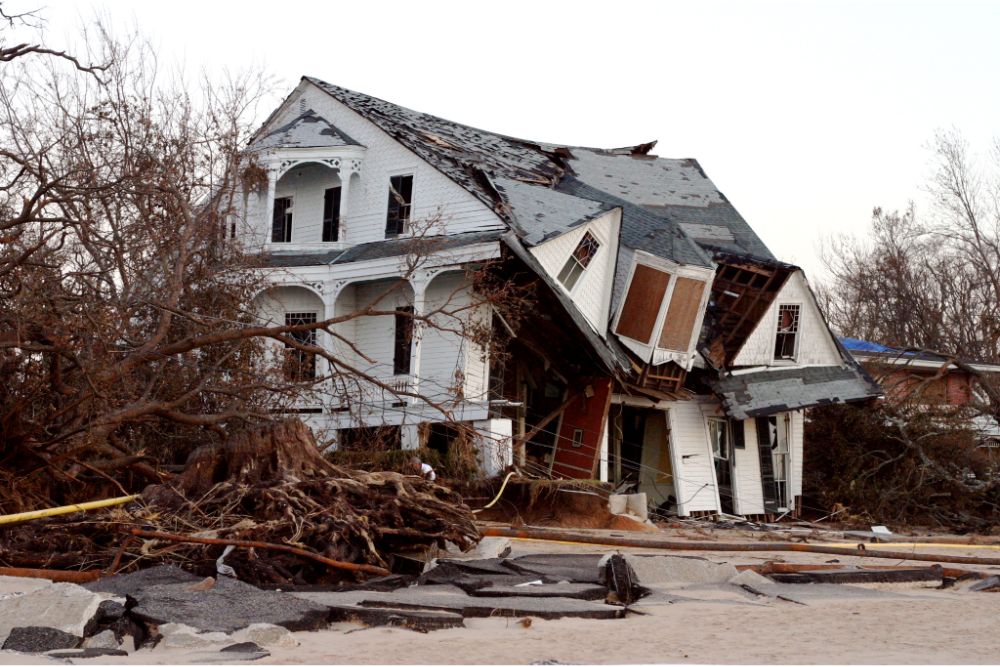
Hurricane season can bring unpredictable, severe weather conditions, but preparation can significantly reduce the risks and impact. From fortifying your house against strong winds to ensuring you have a solid emergency plan in place, these hurricane safety tips can help you face the storm with confidence and resilience.
How to Hurricane-Proof Your Home
Understanding how to prepare your house for a hurricane is essential to safeguarding your property and ensuring your family’s safety. Follow these comprehensive steps to reinforce your home against the devastating effects of hurricanes.
Secure and Seal Your Roof
Ensuring your roof is securely fastened and properly sealed is important in hurricane-prone areas. Start by inspecting your roof for any loose shingles or tiles and replacing them right away. You should consider installing hurricane straps or clips to strengthen the roof structure and connect it securely to the walls. A waterproof sealant can also help prevent leaks and water damage during heavy rains.
If your roof is old or damaged, consider completely replacing it with materials designed to withstand high winds, such as metal roofing or specially rated asphalt shingles.
Shield Your Door and Windows
To prevent debris from entering your home, shield your doors and windows. You can put up storm shutters or use impact-resistant windows to create a strong barrier against high winds and flying objects. If you’re looking for a more budget-friendly option, plywood panels can work well if you install them properly before the storm hits.
For your doors, consider using heavy-duty deadbolts and maybe adding a brace or bolt kit for extra reinforcement. Double doors should have a bolt or pin to secure the inactive door to both the floor and the top frame. Also, make sure all your windows and doors are sealed with caulk and weather-stripping to keep water out.
Secure Outdoor Structures and Furnishings
Outdoor structures like sheds, gazebos, and pergolas can become dangerous projectiles during a hurricane. Anchor these structures to the ground using straps or anchors designed to withstand high winds. Additionally, bring outdoor furniture, grills, and potted plants inside to prevent them from being picked up by strong winds.
For items you can’t bring inside, secure them with heavy-duty straps or chains. Ensure any outdoor storage sheds are locked and reinforced, and consider placing sandbags around the base to prevent them from being lifted by strong winds.
Reinforce Garage Doors
Garage doors are often a weak point in a home’s defense against hurricanes, so reinforce your garage door with a bracing kit or replace it with a hurricane-resistant model. This will help prevent the door from being blown in, which can cause severe structural damage to your home.
If replacing them, look for garage doors that meet local wind load requirements and install vertical braces or horizontal reinforcement to add extra strength. Additionally, ensure that the tracks and rollers are in good condition and properly anchored to the walls.
Clear Gutters and Drains
Clogged gutters and drains can lead to water accumulation and potential flooding during a hurricane, so regularly clean your gutters and ensure all drains are clear of debris. This allows water to flow away from your home efficiently, reducing the risk of water damage.
You may also consider installing gutter guards or screens to prevent leaves and debris from accumulating. Make sure downspouts direct water at least 10 feet away from your home’s foundation. Additionally, inspect and clear any drainage ditches, culverts, or storm drains on your property to ensure they are free of obstructions.
Trim Trees and Shrubs
Overhanging branches and dead trees can pose a serious threat during a hurricane. Trim trees and shrubs around your property to remove any weak or dead branches. This protects your home and reduces the risk of power outages caused by falling branches.
Regular maintenance is key, so prune branches too close to your home and remove trees showing signs of disease or instability. If necessary, consult with a professional arborist to assess the health of large trees. Also, ensure that trees are properly rooted and the soil around them is stable to prevent uprooting during high winds.
Hurricane Safety Tips
Follow these hurricane safety tips to stay prepared and protected during hurricane season.
Prepare an Emergency Kit
A well-prepared emergency kit ensures you have everything to survive and stay comfortable if you lose power or need to evacuate. This kit should include essential items such as water, non-perishable food, medications, batteries, flashlights, and important documents. Aim to have at least three days’ worth of supplies for each family member. Also, don’t forget to include items for pets, such as food and any necessary medications.
Make an Evacuation Plan
Having a clear evacuation plan can make all the difference in an emergency. Identify the safest routes out of your area and establish a meeting point where your family can reunite if separated. You should practice the plan regularly so everyone knows what to do and where to go.
Additionally, keep your car’s gas tank full, and have a bag packed with essentials ready to go. For a smooth, timely departure, stay informed about local evacuation routes and shelters.
Review Your Insurance Policy
Before hurricane season, take the time to review your insurance policy to ensure you have adequate coverage. Understand what your policy covers and consider adding flood insurance, as standard homeowners insurance often doesn’t cover flood damage. Also, document your belongings with photos or videos, and keep a detailed inventory to make the claims process easier if you suffer damage. If you need a new policy, look for affordable homeowners insurance options that provide comprehensive coverage for hurricane-related damages.
By taking steps to hurricane-proof your home, following crucial safety tips, and reviewing your insurance policy for adequate coverage, you can protect your property and loved ones. Stay informed, stay prepared, and stay safe.




